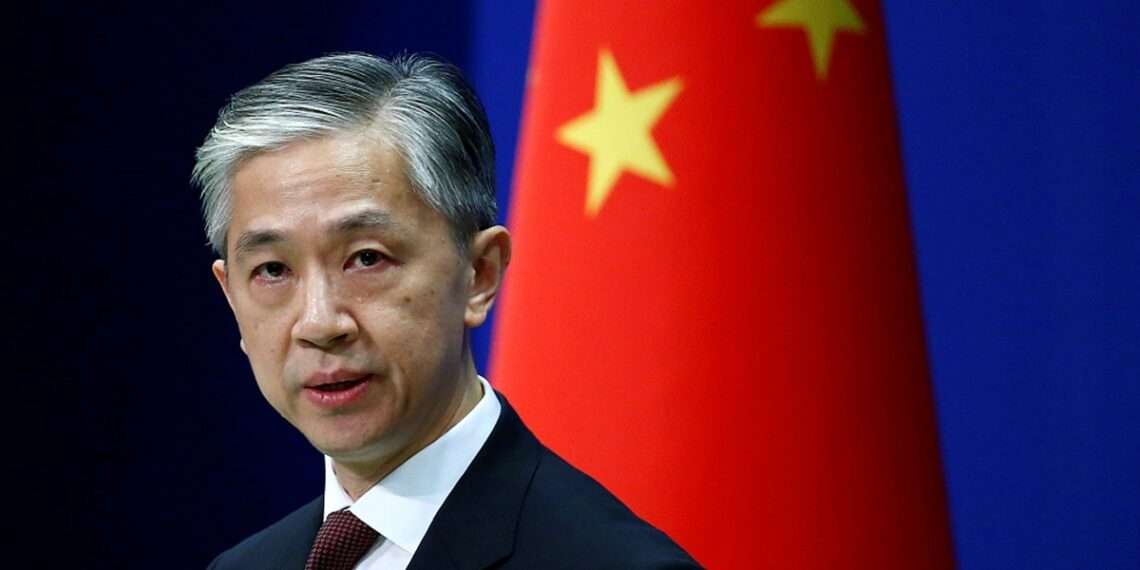China has persuaded Afghanistan to reform its radical policies which bar women from education and public life and “adopt a more resolute attitude in combating terrorism.”
The Taliban have been shunned by most of the international community for the extensive restrictions on political opposition and civic life imposed after they seized power in August 2021. Most notably, girls have been banned from education beyond the sixth grade and women banned from most jobs outside the home.
The remarks from Chinese Foreign Ministry Spokesperson, Wang Wenbin came after a Pakistan-hosted mini-summit of China, Afghanistan and Pakistan that sought to promote trade and lower border tensions amid a surge of attacks inside Pakistan.
Wang averred that China hopes the Taliban-appointed Afghan interim government will “take solid steps in the right direction, make practical efforts to gain the understanding and trust of the international community, and create favorable conditions for Afghanistan to further develop good neighborliness with its neighbors and integrate into the international community.”

China typically avoids making comments on the internal politics of countries with which it seeks to build goodwill or can use as leverage in its fight against the U.S. and other liberal democracies’ hegemony over the world’s affairs.
China has also made hesitant efforts to extend its Belt and Road Initiative to Afghanistan that could see construction of railways and bridges. However, it is chiefly concerned with Afghanistan harboring separatists opposed to Chinese control in its northwestern region of Xinjiang.
“The international community still has a lot of concerns and expectations for the Afghan interim government, including hoping the Afghan side will make more progress in implementing moderate and prudent internal and external policies and safeguarding the rights and interests of women and children, and adopt a more resolute attitude in combating terrorism so as to produce more visible results.”
Wang Wenbin
Diplomats Agree To Bolster Cooperation
At the mini-summit, the diplomats from the three nations agreed “to further deepen and expand their cooperation in the security, development and political domains based on the principles of mutual respect, equal-footed consultation and mutual benefit.”
The involvement of China’s Foreign Minister, Qin Gang in the talks represented a further expansion of Chinese diplomacy into the Muslim communities following Beijing’s hosting of talks resulting in the resumption of diplomatic ties between Saudi Arabia and Iran.
Qin met with President Arif Alvi, Foreign Minister Bhutto Zardari and Pakistan’s powerful army chief, Gen. Asim Munir.

Also, Wang praised a joint statement issued on Monday, May 8, 2023, at the end of the trilateral meeting as the first time the Taliban had put in writing a commitment to disallow terrorist groups to use Afghanistan as a base of operations.
That document is “of great significance to the future development of China-Afghanistan relations and the promotion of regional counter-terrorism and security cooperation,” Wang opined.
“As a traditional friendly neighbor of Afghanistan, China believes that Afghanistan should not be excluded from the international community.
“The well-being and interests of the Afghan people deserve attention, the peace and reconstruction process of Afghanistan should be encouraged, and its sovereignty and territorial integrity should be respected.”
Wang Wenbin
The joint statement noted that the three sides stressed the need to prevent any individual, group or party “to use their territories to harm and threaten regional security and interests or conduct terrorist actions and activities.”
READ ALSO: ASEAN Leaders Decry Attack On Aid Convoy In Myanmar





















